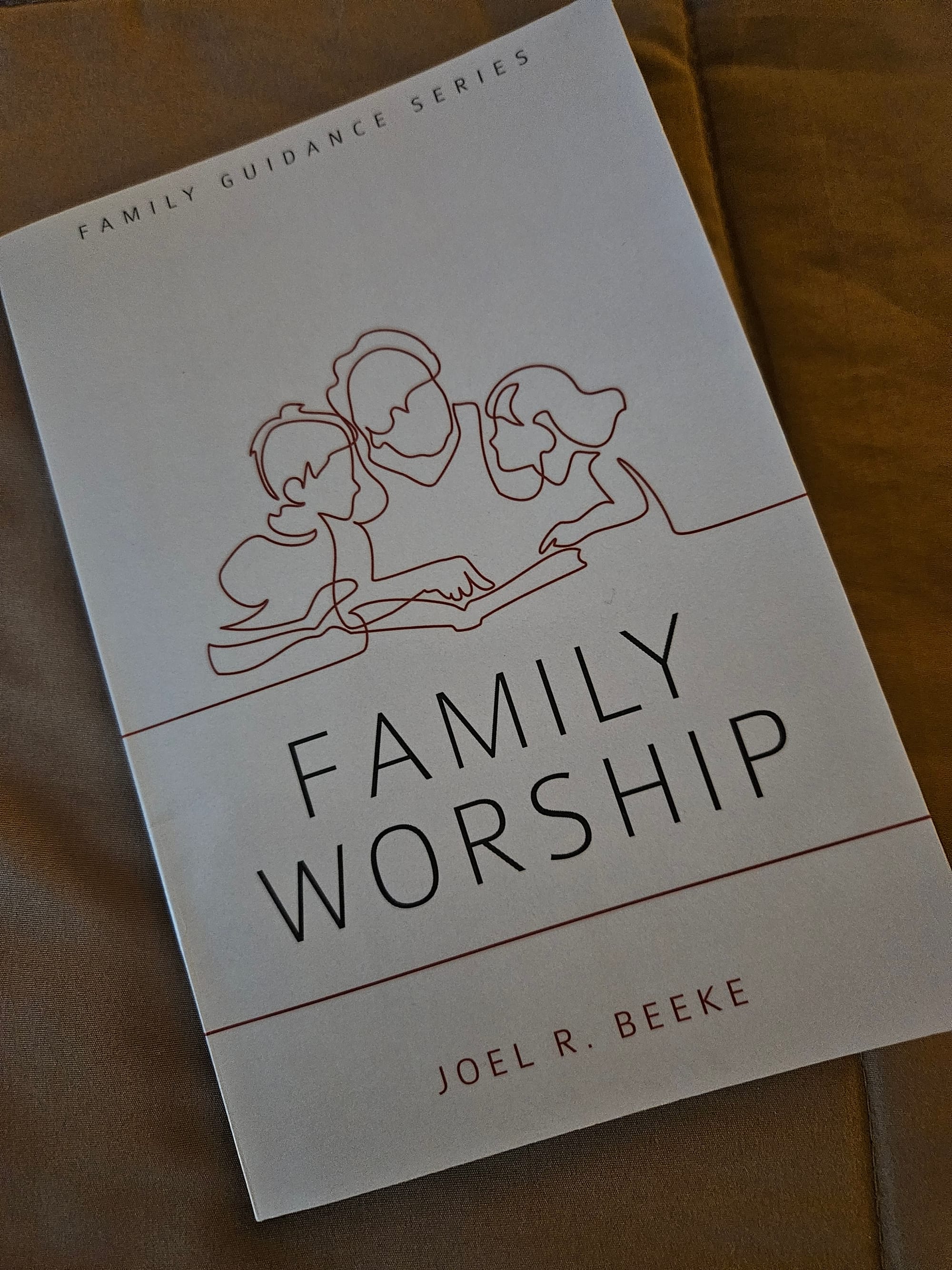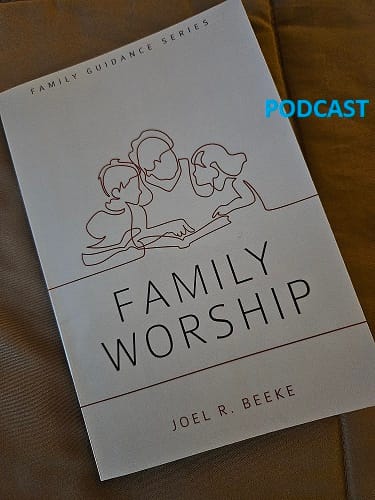Beeke, John, Family Worship (Grand Rapids: Reformation Heritage Books, 2009)
Beeke contends that worship is pivotal in the life of the family. The text is specifically instructive. He gives direct practical instructions for family worship.
He is a reformed pastor with a grasp of historical theologians. It has been helpful to read and digest the contents of this book. He refers to several historic theologians in the text. Several times he mentions JC Ryle quoting from his work "Duties of Parents." He also refers to Matthew Henry. He makes the case that family worship has been part of the Christian family for centuries. He directly charges, "Heads of households, we must implement family worship in the home. God requires that we worship Him not only privately as individuals, but publicly as members of the covenant body and community, and socially, as families (14)." He clearly wants fathers to lead in family worship as part of the larger worship life of the individual family members.

Beeke moves through the theological foundation for family worship, to the duties of family worship, and implementing family worship as he lays solid groundwork for what he considers the proper practice of worship in the home. He then deals with the objections and motivations for family worship. Finally, he concludes with two appendices that give guidance for and address the results of worship in the home.
His section on prayer is instructive, while being slightly confusing. He wants to keep prayer short, because he says children cannot participate in pray for more than five minutes. However, when praying for their needs, children can go much longer when the prayer is important to them.
He is biblical in his applications. He uses puritans and historic church leaders from the past 250 years for application of his ideas and family worship strategies.
The book is helpful for providing a resource to a father who is implementing family worship. Beeke makes the case that is part of fulfilling the father's role in the family. Much of the book is directive and instructive, however, he does not leave room for other perspectives for implementing family worship. It is a short book presenting a concise direct argument for doing family worship the author's way. Overall I agree with what he writes, his suggestions are worth considering for using, especially with younger children.


